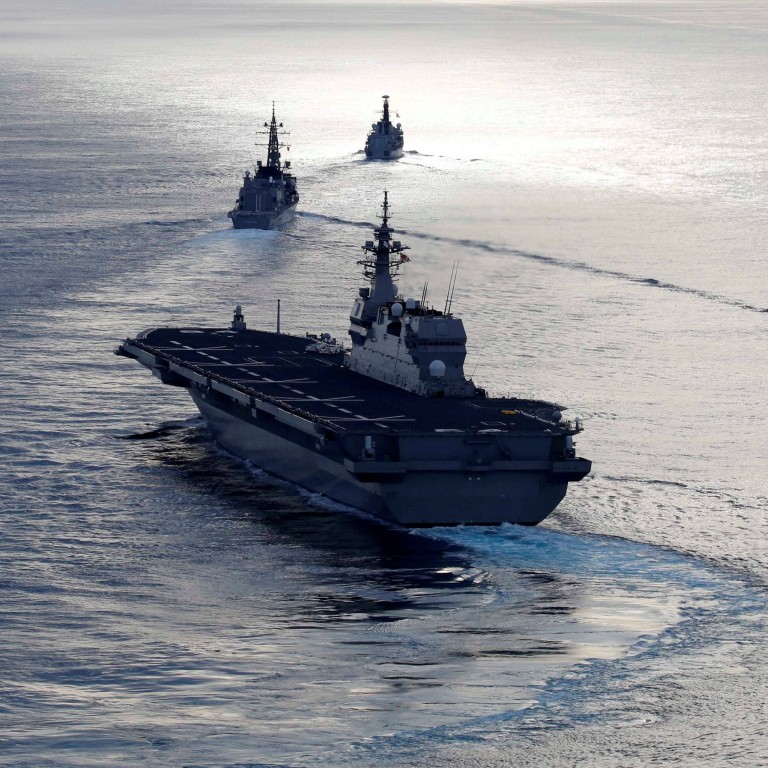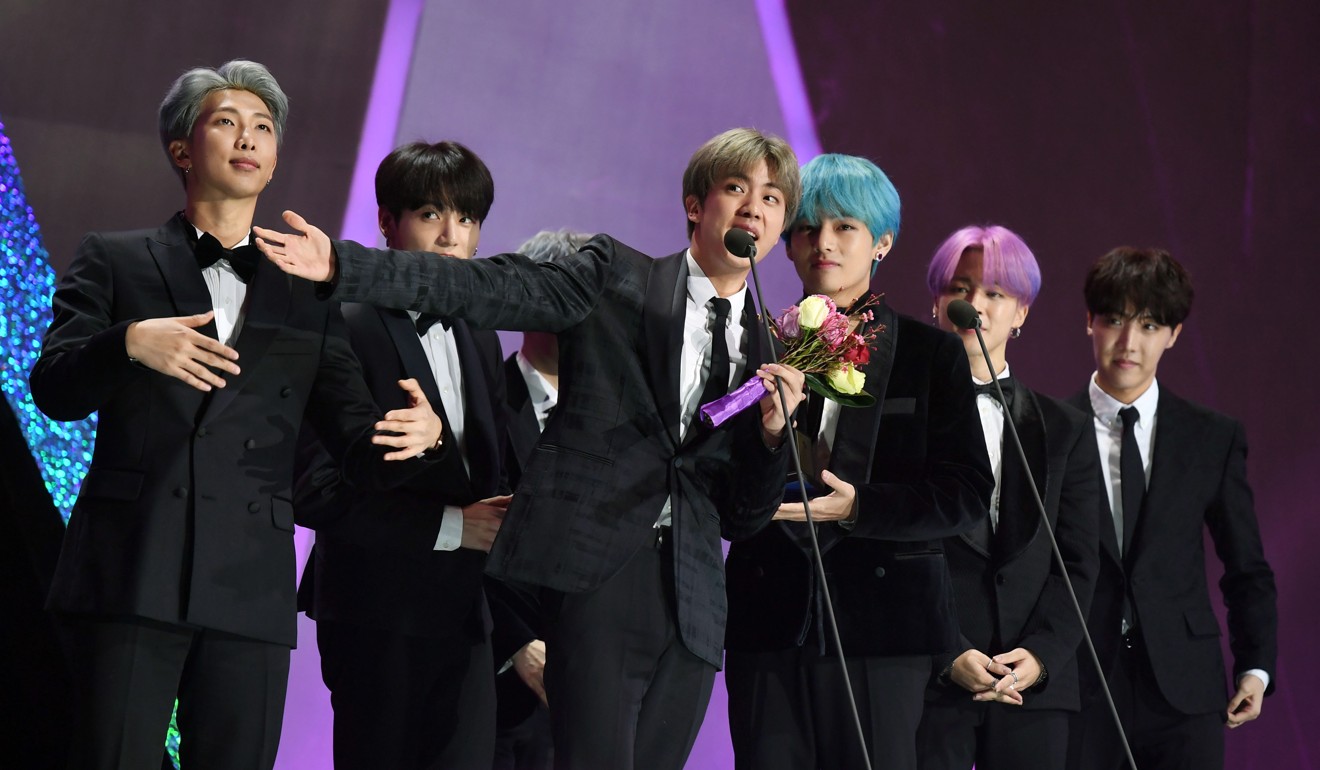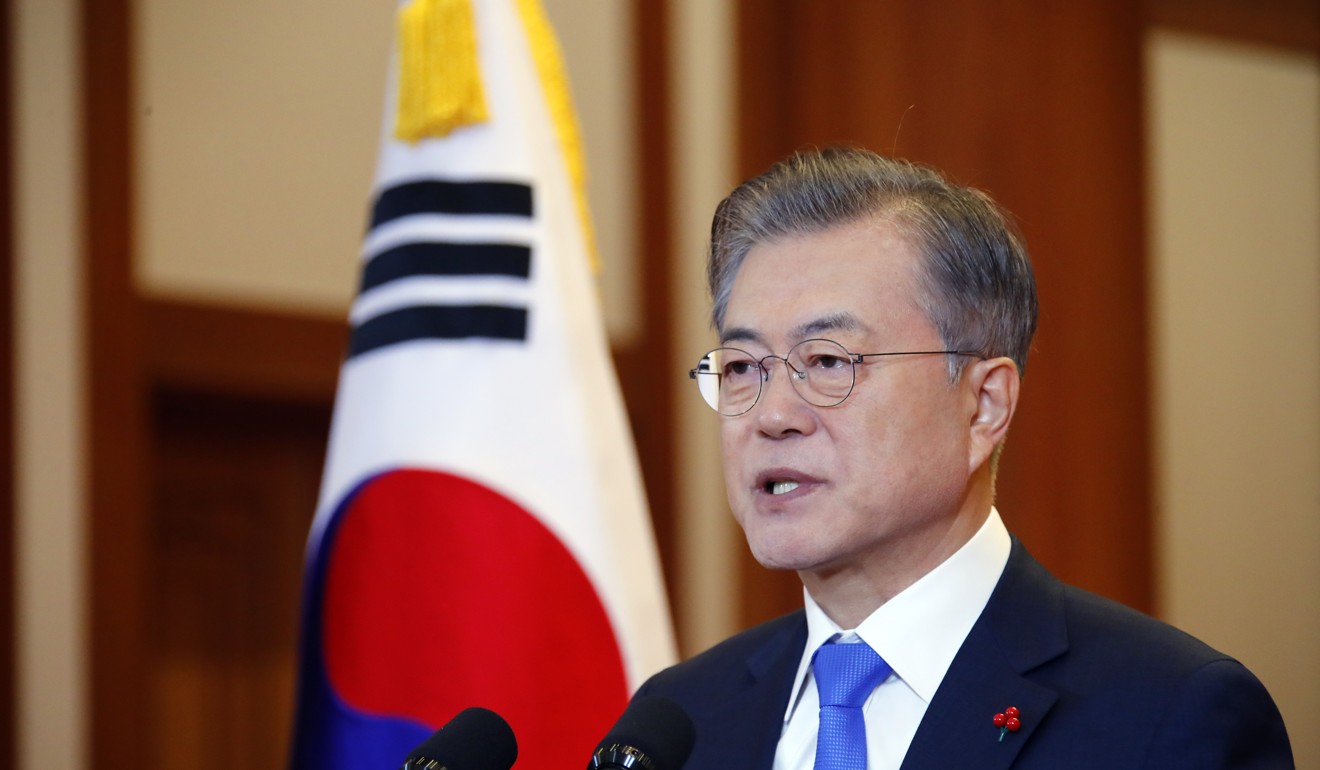
Tokyo to discuss Sea of Japan’s name with Seoul. Just don’t call it the East Sea
- Japan and South Korea are at odds over the name of the body of water that separates them but are under pressure from the IHO to talk
- Experts say ill will could affect exports such as K-pop
The move by Japan comes amid pressure from the International Hydrographic Organisation. However, Japan also says it is uncomfortable with the suggestion the area appear on maps as both the Sea of Japan and the East Sea. It argues that the waters have been known as the Sea of Japan for a century and that the IHO has already recognised that name as the sea’s official title.
US wants Japan and South Korea to tag team China. But history is in the way
Based in Monaco, the IHO is tasked with identifying the names of oceans and seas around the world and provides guidelines when nations draw up marine charts that include maritime borders.
Tokyo points out that since the organisation was set up in 1921, the waters between Japan and the Koreas have been known as the Sea of Japan and that South Korea only raised the issue at the UN, with which the IHO is affiliated, in 1992.
Since then, Seoul has insisted that the term Sea of Japan was introduced only as a result of Tokyo’s colonial occupation of the peninsula, between 1910 and 1945.
Koreans appear to be making quite a big deal out of something that is really rather insignificant
South Korea has continued to apply pressure and the IHO last year informed Tokyo that it reserved the right to revise the name of the body of water without any input from Japan if the government continued to refuse to hold discussions on the matter with Seoul.
In a statement issued to the South China Morning Post, Japan’s Ministry of Foreign Affairs said, “As a responsible member of the IHO, Japan intends to make constructive contributions to informal talks.
“The government of Japan continues to call for its position, that there is no need or reason for changing the name, as the name ‘Sea of Japan’ is the only internationally established name for the sea area concerned.”
Jun Okumura, a political analyst at the Meiji Institute for Global Affairs, said: “Koreans appear to be making quite a big deal out of something that is really rather insignificant, which hopefully means that it won’t have a substantive impact on bilateral relations – but it could do.”

He said the debate was ironic given that Seoul had steadfastly refused to consider requests from Tokyo for international arbitration over the sovereignty of the South Korean-held islands of Dok-do, which Japan claims and knows as Takeshima.
“Conservatives might be angry at this, but I can also see the broader ill will growing over this and other issues and that will have an impact on the real economy, on tourism, for example, on K-pop and we might see TV channels here not renewing Korean dramas for broadcasting,” Okumura said.
“But while the Koreans might find it impossible to stand up to China and difficult to resist the United States, standing up to Japan is the easiest thing in the world and something that they know will unite the nation behind them.”
Women raped by Korean soldiers during Vietnam war seek Seoul’s admission of sexual violence committed by its troops
The argument over the sea’s name is the latest sore point in bilateral relations. Other recent sticking points have included Seoul’s scraping of an agreement to draw a line under the “comfort women” issue and a ruling by South Korean courts that Japanese companies should compensate former forced labourers, despite a 1956 pact that stated that no further redress need be provided.
There are also tensions between the armed forces of the two nations, in particular tit-for-tat allegations over an incident between a South Korean warship and a Japanese reconnaissance aircraft. Seoul denies that its vessel locked its fire control radar onto the Japanese plane and instead insists that the Japanese military performed a dangerous manoeuvre at low altitudes.
On Monday, the Japanese defence ministry said its “final view” was that South Korea’s claims were “baseless” and that it was impossible to continue talks on the matter.

Tokyo is also extremely concerned at Seoul’s apparent willingness to accept North Korean promises on denuclearisation and to meet its demands for an end to international sanctions and the provision of economic assistance.
“Russia and China have never complained about the name and we Japanese have not protested about the Korea Strait, which we know as the Tsushima Strait,” he said.
“They’re raising their voices louder and more frequently, but it just comes across as Koreans being neurotic,” he said.
Additional reporting by Kyodo

